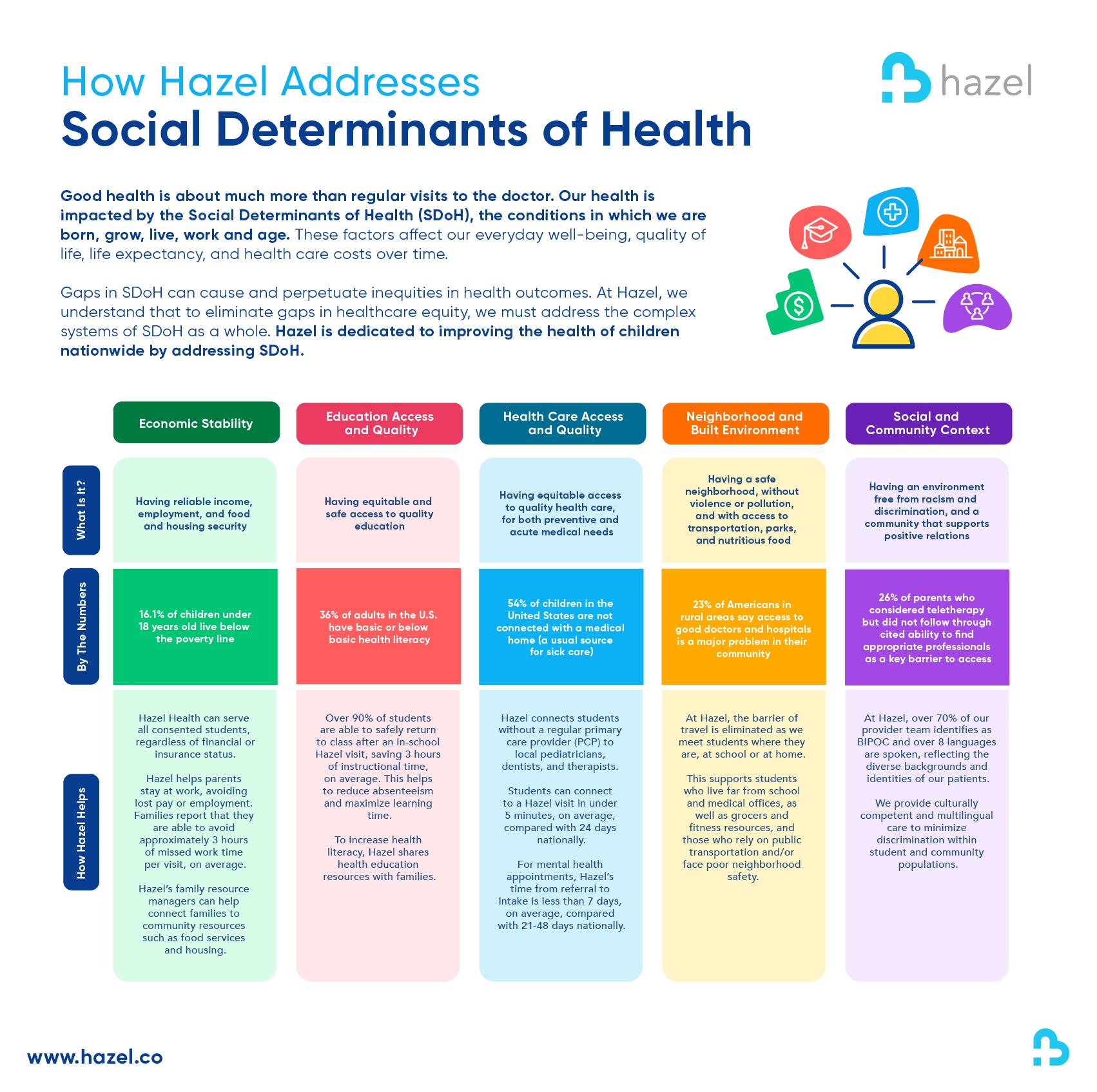In the intricate web of healthcare, there exists a vital yet often overlooked element – health-related social needs. These needs weave a tapestry of challenges and opportunities that shape individuals’ well-being beyond traditional medical care. Explore with us as we unravel the significance of addressing these social determinants of health and delve into the transformative impact they have on individuals and communities alike. Join us on a journey that transcends the clinical realm, where the intersection of health and social needs opens the door to a deeper understanding of holistic wellness.
Table of Contents
- Understanding the Impact of Social Determinants on Health
- Addressing Food Insecurity to Improve Health Outcomes
- Community Programs: Bridging Gaps in Health Services
- Empowering Patients Through Social Support Initiatives
- Q&A
- Key Takeaways


Understanding the Impact of Social Determinants on Health
Social determinants play a crucial role in shaping an individual’s health outcomes, influencing factors beyond traditional medical care. Factors such as socioeconomic status, education level, living conditions, access to healthcare, and community environments can significantly impact one’s overall well-being. By addressing these social needs, healthcare providers can better understand the root causes of health disparities and work towards creating more holistic and effective interventions.
Understanding the interconnected nature of social determinants and health can lead to more targeted and impactful solutions that address the underlying issues affecting individuals’ health. By recognizing and addressing these factors proactively, healthcare systems can improve patient outcomes, reduce healthcare costs, and promote health equity. It is imperative to incorporate a comprehensive approach that considers not only medical treatments but also social support systems and community resources to truly make a difference in individuals’ health and well-being.

Addressing Food Insecurity to Improve Health Outcomes
Picture a world where access to nutritious food isn’t a luxury but a basic human right. In the fight against food insecurity, we pave the way for improved health outcomes and stronger communities. By addressing the social determinants of health, such as access to fresh produce and nutritional education, we lay the foundation for a healthier and more equitable society.
Empowering individuals to make healthier food choices not only benefits their physical well-being but also nurtures a sense of dignity and empowerment. Through community-based initiatives, educational programs, and sustainable food solutions, we can create a ripple effect of positive change that transcends individual health and resonates throughout entire neighborhoods. Together, we can cultivate a culture where everyone has the opportunity to thrive, one nourishing meal at a time.
Community Programs: Bridging Gaps in Health Services
Community programs play a vital role in addressing the holistic well-being of individuals by offering support beyond traditional healthcare services. These initiatives serve as bridges that connect gaps in health services, ensuring that people’s health-related social needs are met. Through a combination of education, outreach, and collaboration, these programs empower communities to lead healthier lives.
Partnerships with local organizations and volunteers form the backbone of these community programs. By fostering a sense of belonging and mutual support, individuals are encouraged to access resources that enhance their overall health outcomes. From wellness workshops to peer support networks, these initiatives create a nurturing environment where everyone’s well-being is valued and prioritized. The impact of these programs extends far beyond physical health, promoting social connectedness and emotional resilience among participants.
[table id=1 /]

Empowering Patients Through Social Support Initiatives
In today’s healthcare landscape, social support initiatives play a paramount role in empowering patients to navigate their health-related challenges. By fostering a sense of community and understanding, these initiatives create a nurturing environment where individuals can find solace and strength. Through shared experiences and mutual encouragement, patients can find the support they need to cope with their health-related social needs.
Benefits of Health-Related Social Support Initiatives:
Emotional Well-being: Provides a safe space for patients to express their feelings and receive empathy from others.
Information Sharing: Enables individuals to exchange valuable insights, tips, and resources to better manage their health conditions effectively.
Sense of Belonging: Cultivates a feeling of inclusion and solidarity among patients facing similar health challenges.
Impact of Social Support on Health Outcomes:
Improved Adherence: Encourages patients to adhere to their treatment plans and adopt healthier lifestyle choices.
Enhanced Coping Mechanisms: Equips individuals with coping strategies to deal with stress and challenges related to their health conditions.
Reduced Isolation: Mitigates feelings of loneliness and isolation by connecting patients with a supportive community of peers facing similar health issues.
Q&A
Q: What are health-related social needs and why are they important?
A: Health-related social needs refer to the non-medical factors that influence an individual’s health and well-being. These may include access to healthy food, safe housing, transportation, social support, and financial stability. Addressing these needs is vital because they can significantly impact a person’s overall health outcomes and quality of life.
Q: How can health-related social needs affect an individual’s health?
A: Health-related social needs can affect an individual’s health in various ways. For example, inadequate access to healthy food can lead to poor nutrition and chronic conditions like obesity or diabetes. Lack of safe housing may contribute to stress, insecurity, and a higher risk of illnesses. Social isolation can impact mental health and overall well-being. By addressing these social needs, individuals can experience improved health outcomes and better quality of life.
Q: What strategies can healthcare providers implement to address health-related social needs?
A: Healthcare providers can implement various strategies to address health-related social needs effectively. This may involve conducting social screenings during patient visits to identify specific social needs. Referring patients to community resources such as food banks, housing assistance programs, or social services can help meet their needs. Collaborating with social workers, community organizations, and government agencies can also play a crucial role in addressing social determinants of health.
Q: How can individuals advocate for themselves to address their health-related social needs?
A: Individuals can advocate for themselves by communicating their social needs openly with healthcare providers. Keeping track of their social challenges and seeking support from community resources can empower individuals to address their health-related social needs. Building a strong support network of friends, family, or support groups can also provide valuable assistance in navigating and overcoming social barriers to health.
Q: What role can policymakers play in addressing health-related social needs on a larger scale?
A: Policymakers play a critical role in addressing health-related social needs at a systemic level. By implementing policies that promote affordable housing, healthy food access, transportation options, and social support services, policymakers can create environments that support individuals’ overall health and well-being. Advocating for policies that address social determinants of health can lead to more equitable and healthier communities for all individuals.
Key Takeaways
As we delve deeper into the realm of health-related social needs, it becomes evident that the intersection of healthcare and social well-being is a crucial factor in achieving holistic wellness. By shedding light on the importance of addressing social determinants of health, we pave the way for a future where individuals are supported not only in medical settings but also in their communities. Let us continue to explore, understand, and advocate for initiatives that promote health equity and foster a society where everyone has the opportunity to thrive. Embracing the interconnectedness of health and social needs brings us closer to a world where well-being knows no bounds.




0 Comments